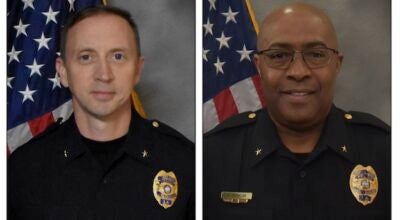Sulphur slaying case before US Supreme Court
Published 8:52 am Tuesday, January 15, 2013
Attorneys for Jonathan Boyer argued to the U.S. Supreme Court Monday that the state was responsible for finding the funding to get Boyer to trial within the three-year statute of limitations.
Boyer was found guilty of second-degree murder in 2009 in the 2002 killing of 21-year-old Bradlee Marsh near Sulphur.
He was originally charged with first-degree murder, although the charge was amended to get the case to trial.
Boyer was sentenced to life in prison without parole and to 104 years in prison without parole on a charge of armed robbery with a firearm.
According to court testimony, Marsh gave Boyer and his brother, Anthony Boyer, a ride. Jonathan Boyer shot Marsh three times in the head and stole about $5 from him. Boyer told investigators he accidentally shot Marsh as he was attempting to rob him.
The Supreme Court will give its decision at a later date.
Richard Bourke, of the Louisiana Capital Assistance Center, told the Supreme Court that an appeals court found that most of the seven-year delay was caused by lack of funding, according to transcripts available on the Supreme Court’s website.
Where the appeals court erred, Bourke contended, was in ruling that the lack of funding was beyond control of the state.
Money was needed, Bourke said, to fund lead counsel Tom Lorenzi, as well as investigative costs and expert witness costs.
Bourke said Lorenzi filed a motion to quash the charges in July 2005, one month after the option became available.
Justice Samuel Alito cited four instances in which Lorenzi filed continuances to the indigent defense hearings
“What do we do with those?” Alito asked Bourke.
Bourke asked that the court find that it was the “lack of funding, not any action by Mr. Lorenzi, which caused the delay.”
Justice Antonin Scalia asked several times why Boyer’s defense wasn’t more demanding in their requests for a speedy trial.
Louisiana law prohibits a defendant from filing a motion for a speedy trial without an affidavit that they are ready to move forward, Bourke said.
Justice John Roberts told Bourke, “(Lorenzi) seemed more interested in the funding than a speedy trial.”
“In the absence of funding, there was no trial to be had,” Bourke replied.
In answer to questioning from Justice Sonia Sotomayor, Calcasieu Parish prosecutor Carla Sigler said that there were funds available, in the Calcasieu Parish Public Defender’s Office capital defense account, yet Lorenzi proceeded with the indigent funding motion.
“There was an identified account that would have paid him,” Sigler said.
She also argued that there was funding available in 2003 when the case was begun; the funding issues didn’t arise until 2006.
“This is not a case in which there was never any funding,” Sigler said. “This was a case in which defense counsel, for whatever reason, delayed a resolution of the funding issue, an issue that he himself identified as one, without any resolution he was not going to go forward with substantive motions.”
Boyer’s defense could have demanded a speedy trial, Scalia said: “The defense has to complain, has to demand its right to a prompt trial.”
Scalia also questioned whether the defense could have proceeded to trial with the one lawyer that was funded — assistant counsel Steven Singer.
Louisiana law calls for two attorneys to represent defendants in capital murder cases.
Christine Lehman also served as associate counsel, Sigler said.
Lehman wasn’t qualified to serve as lead counsel, but was more than qualified to serve as associate counsel, having worked on seven capital cases, Sigler argued.
“It seems to me your client was faced with a choice,” Scalia told Bourke. “You could either demand what Louisiana in its generosity has given to capital defendants, namely the right to two counsel, whether it’s by statute or by supreme court rule, it doesn’t matter. You can either demand that right, or you could demand your right to a speedy trial. That was your choice.”
Sigler gave three reasons why the Supreme Court should rule in the prosecution’s favor:
• The delay was due to the Boyer’s defense’s “repeated requests to continue his own funding motion, which delayed a source of funding when (Boyer) wished to proceed with capital-certified counsel.”
• “Even if this Court determines that there was a negligence factor with regard to the State of Louisiana in not properly funding capital-certified counsel, there are valid policy interests at play here; and the fact that Louisiana is generous enough to provide specially certified counsel to capital indigent defendants when there is no constitutional requirement for it to do so.”
• Boyer did not “meaningfully assert his right to a speedy trial.”
Alito suggested a rule that “If the failure to provide funding makes it impossible for some period of time for a case to be tried, then the delay is attributable to the State.”
He asked Sigler if she would agree with that rule.
“If the failure to provide funding is a deliberate attempt on the State to interfere with the Sixth Amendment right to counsel,” she said.
(mgnonline.com)




